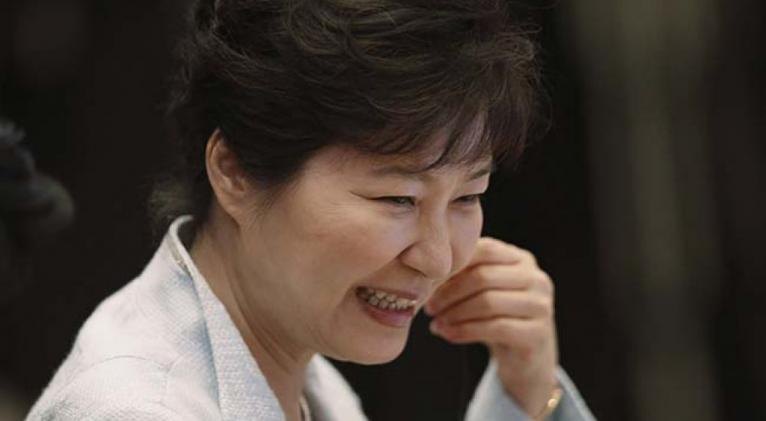South Korea President Urges Tough China Response To North's Test
especiales

The defence ministry said the drone effected a brief incursion, but swiftly returned to the North side when South Korean troops fired a series of warning shots.
Any shooting on what is probably the world's most heavily militarised border is rare and a cause for concern, though there was no exchange of fire and the incident showed no immediate sign of escalating.
But it fuelled already heightened tensions on the frontier, where the South has been blasting high-decibel propaganda broadcasts into the North as punishment for last week's nuclear test.
Earlier in the day, President Park told an annual press conference that the nuclear test was an "unacceptable challenge" to global security that had to be met with unprecedented severity.
"The international community's counter measures... must differ from the past," Park said.
As well as working with the United Nations to adopt the "strongest" resolution to penalise North Korea, Seoul would also discuss additional "punitive sanctions" with the United States and its allies, she added.
China Must 'Act'
The president stressed that China, North Korea's main ally and economic benefactor, would be critical in securing an effective Security Council resolution.
Noting Beijing's public admonishments of Kim's regime over its nuclear programme, Park said it was time for China to move beyond rhetoric.
"I believe China is aware that if its strong determination is not put into actual, necessary actions, we will not be able to prevent a fifth or sixth nuclear test," she said.
Her stance was backed hours later by a meeting in Seoul of the US, Japanese and South Korean special envoys on North Korea.
"I think the Chinese will agree with us that the only way we can send a clear message to Pyongyang is to adopt strong international measures," the US envoy Sung Kim told reporters after the talks.
But Park's entreaties went largely ignored at the regular foreign ministry briefing in Beijing, where the spokesman reiterated China's standard line about working with all interested parties to resolve the issue and achieve a "durable pace" in the region.
North Korea says last week's test was of a miniaturised hydrogen bomb -- a claim dismissed by experts who argue the yield was far too low for a full-fledged thermonuclear device.
Whatever the nature of the device, it was North Korea's fourth nuclear test since 2006, and further evidence of Pyongyang's intention to continue developing its nuclear weapons capability in the face of international censure.
"An additional North Korean provocation can take place any time," Park said, adding that Seoul and Washington were discussing the transfer of further US "strategic assets" to the peninsula.
A nuclear-capable US B-52 bomber flew a highly-visible mission to the peninsula on Sunday, and the nuclear-powered aircraft carrier USS Ronald Reagan, as well as B-2 stealth bombers and F-22 stealth fighter jets, are understood to be among the additional deployments being considered.
Nuclear War Clouds
In a meeting with his nuclear scientists in Pyongyang on Tuesday, North Korean leader Kim Jong-Un said the talk of sanctions and movement of strategic weapons was "bringing dark clouds of a nuclear war" to the peninsula.
He urged them to build up a nuclear force "capable of making nuclear strikes at the US-led imperialists anytime," the official KCNA news agency reported.
Following the test, Pyongyang's invitation to the World Economic Forum in Davos was revoked, just months after it was asked to join the gathering in the interest of furthering dialogue and reconciliation.
The North's military muscle-flexing was slightly deflated Wednesday by expert analysis of its most recent submarine-launched ballistic missile test in December.
Pyongyang hailed the test as a great success and released a video which, researchers at the California-based James Martin Center for Nonproliferation Studies concluded, had been heavily doctored and edited to cover up a "catastrophic" failure.













Add new comment